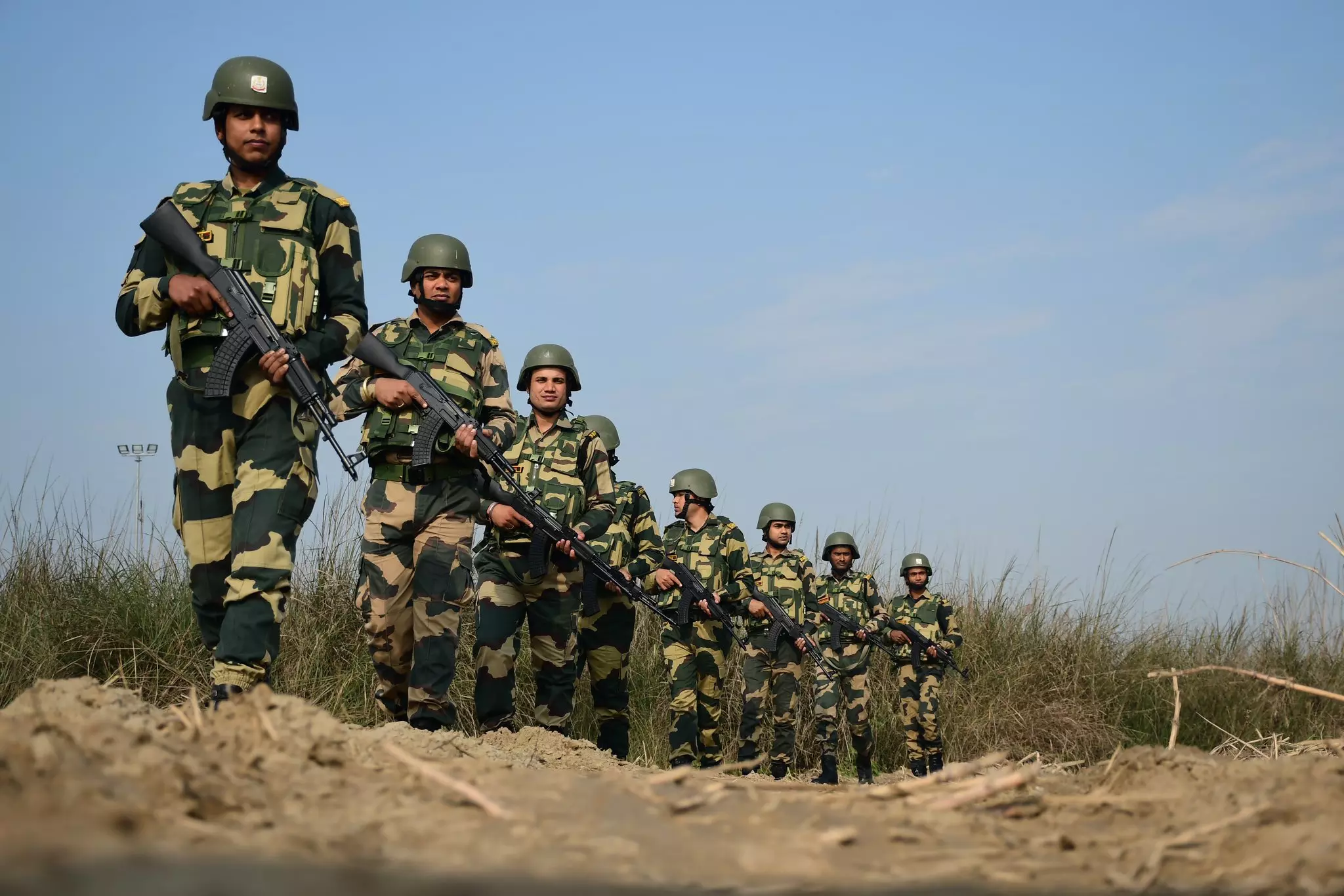
BSF personnel. Representational image.
To protect border, BSF guards endure extreme weather from 55 degrees to zero
The vagaries of nature also include blinding sandstorms, when SUVs have to give way to camels and the border guards need to know how to ride them to protect the international boundary.

The Border Security Force (BSF) personnel have their share of woes, as they keep a watch on the India-Pakistan border in the sprawling desert terrain in Rajasthan's Jaisalmer district. They have to endure 55 degrees Celsius in summer to zero degrees Celsius in winter.
The vagaries of nature also include blinding sandstorms, when SUVs have to give way to camels and the border guards need to know how to ride them to protect the international boundary.
A strict vigil and patrolling along the 464 km-long boundary is maintained to ensure that there is no incident of intrusion or drug trafficking from the other side, Commandant of the BSF's 154 Battalion Manjit Singh told PTI.
This is the longest stretch of the International border in Rajasthan.
"Extreme weather conditions of very high temperature and sandstorms in summer and freezing winters are a major challenge for the troops patrolling the border," Singh said.
In summers, the temperature rises to 55 degrees C, and in winter, it drops to zero degrees C, he pointed out.
After they are posted in these areas they go through an acclimatisation process and they adapt easily to the conditions, Singh said.
There is a proposal to introduce “cool jackets" for the troops patrolling this patch of the International border, which will help reduce the body temperature by six to seven degrees C.
"A pilot testing (of cool jackets) will be soon conducted and if it proves successful, it will be included in the BSF inventory of the area", the BSF official said.
Sandstorms in summer are also a major challenge with patrolling SUVs unable to move in the terrain.
"In such a situation, patrolling by the troops is done on camel backs and 44 animals are deployed in this sector. Camels are an integral part of border patrolling in the deserts and our personnel soon become adept at riding the animal,” Singh added.
On the security angle, he said monitoring of drone movement is a major surveillance activity of the troops.
There is a threat of drug trafficking with the help of drones but high alert is maintained and there has been no such incident in the recent past, the BSF officer added.
"Drone movements have been sighted but it is mostly on the Pakistan side of the border and has not intruded into our space as a strict surveillance regime is followed by the BSF," he said.
BSF personnel riding camels as they patrol the border. File photo
The drone activity may be for surveillance or reconnaissance purposes, he said.
A strong intelligence network at the ground level coupled with the electronic surveillance of vulnerable patches has also ensured that there is no crossing of the border from either side, the officer said.
"The people of the border villages report immediately to the BSF if any outsider is seen in their area and we have been able to apprehend those who were planning to cross the border or intruded into our side," he added.
The double fencing of the border has also reduced the possibility of intrusion, Singh said.
As the population is scarce on either side of the border, any attempt to intrude is immediately spotted, he added.
(With agency inputs)

